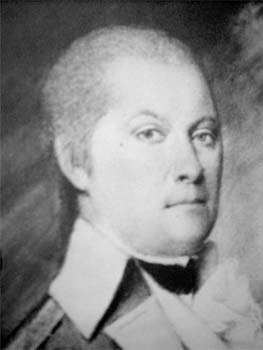(4.) CHARLES COTESWORTH PINCKNEY (1746-1825)
Defeated by Jefferson in 1800 and 1804; by Madison in 1808
Pinckney rendered distinguished service during the Revolutionary War and was a delegate from South Carolina in the Constitutional Convention in 1787. His was one of the first motions in that body to reorganize the government of the United States under the Articles of Confederation. It was the first election by which candidates for vice-president and president were separate.
An important issue of the 1808 campaign was the impressment of American seamen by the British. Madison sent Pinckney to join Monroe, our ambassador to England, to effect a treaty to stop this, to restore West India Trade and to secure an indemnity to the United States. The treaty was a failure in American diplomacy.
The affair of the Chesapeake and Leopard, in which three men were killed and 18 wounded, aroused greater anti-British sentiment. Finally, an agreement was made and retaliatory acts repealed, but this was followed by The Embargo, which virtually ruined our foreign trade and was violently opposed by the mercantile section of the country. Federal taxes for defense were very unpopular with the Democrats and the prospect of another war evoked the charge of “War hawks” against proponents.
While in Paris on a commission in 1797, Pinckney is said to have replied to Talleyrand’s intimation that money might smooth the difficulties, “Millions for defense, sir, but not one cent for tribute.” |
